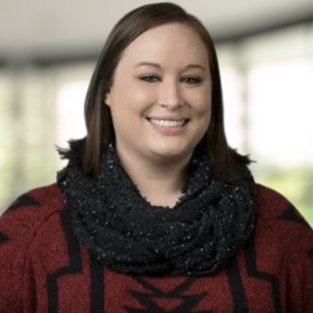5 Ways to Prevent Substance Abuse in Teens
Teens these days face a myriad of challenges as they navigate the world around them. They are gaining important life skills, learning about themselves, and forming the foundation of personality characteristics that will likely be with them for the rest of their lives.
As the Chief Clinical Officer at Sandstone Care, I oversee all clinical services for the organization. Through my experience, I have seen firsthand the challenges that teens are facing and the importance of having honest conversations with the teens in your life about substance use.
Challenges Teens Face
As teens navigate challenges such as social media, peer pressure, and learning to cultivate healthy relationships, mental health-related issues may occur. Further, as the National Institute of Mental Health states, mental disorders can contribute to substance use.
With this in mind, it’s important to know how you can best support your teen. Here are 5 ways you can help prevent teen substance use whether it’s experimental or used as a coping mechanism:
#1 Talk to your teen
Sometimes it can be as simple as this. Providing education and a firm stance on the effects of substance use and your views as a parent can alter the course for many kids.
In fact, it has been shown that teens who learn about the risks of drugs from their parents are 50% less likely to use drugs. Knowing this, it’s important to start these conversations early and continue to have an open dialogue as your teens mature.
#2 Establish choices and consequences
One of the best “teachers” in life is experience and, more so, consequential experience. Touch the hot stove once and you’ll be more mindful of how you set down the cookie sheet in the future.
The same is true for teens. Teens that have no consequences for their behavior will struggle to guide their choices in a positive direction since there is no immediate feedback.
Expectations should be set regarding rules for the family as a whole and each member. If the rules are broken, you should enforce appropriate consequences each and every time to inform future choices.
For example, if your teen ends up at a party where drug use is happening and does not elect to leave, restricting social outings for two to three weeks would be a suitable consequence.
#3 Get involved
Know your teen’s activities and their friends. Become an attentive participant in their life. If you show interest in their hobbies and activities, teens are more likely to share information with you about their private lives including struggles they may be having.
Assuring teens that they can be honest with you is also important. Taking a non-judgmental stance toward communication is a crucial step in establishing close family ties.
#4 Model healthy behavior and role-play refusal skills
The pressure to fit in and belong is a huge component of adolescence. As teens navigate establishing a unique identity, they will undeniably lean on their peers for advice and look to social media as a way to shape their future selves.
As parents, it’s important that you understand this dynamic and support your teen through this challenge. You should be modeling appropriate ways of behaving and effective ways of coping.
If you drink alcohol, do so in moderation. If you use social media, be mindful how much and of what and how you’re sharing information. Teens look to those around them to figure out what is and is not ok, so it is vital that the first people in their lives be the best source of behavioral information.
Additionally, you can work with your teen on role-playing how to say “no” and how to make it through tough social situations. It may feel awkward at first but the more practice a teen has in saying “no,” the more confident they will feel when difficult circumstances arise in the real world.
#5 Praise them
Offer admiration and positive support when your teen succeeds. If they resolve conflict with a sibling, provide words of encouragement. If they disclose a tough moment where they made the right choice, tell them so!
Positive feedback is an effective tool in shaping teenage behavior.
Prevention can go a long way in keeping teens from developing a substance use disorder and it often starts in the home.
 Sarah Fletcher, LPC, LAC – Sarah Fletcher serves as the Chief Clinical Officer at Sandstone Care, overseeing all clinical services for the organization. Sarah holds a bachelor’s degree in Psychology with a minor in Sociology, along with a master’s degree in Rehabilitation Counseling with a specialization in substance use disorders. Sarah is a Licensed Professional Counselor, as well as a Licensed Addiction Counselor.
Sarah Fletcher, LPC, LAC – Sarah Fletcher serves as the Chief Clinical Officer at Sandstone Care, overseeing all clinical services for the organization. Sarah holds a bachelor’s degree in Psychology with a minor in Sociology, along with a master’s degree in Rehabilitation Counseling with a specialization in substance use disorders. Sarah is a Licensed Professional Counselor, as well as a Licensed Addiction Counselor.
Take Action
Increased awareness can only mean increased prevention. Join us in the fight against teen cough medicine abuse by exploring and sharing our free resources.
